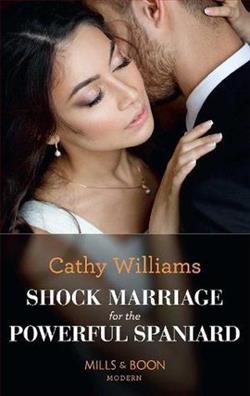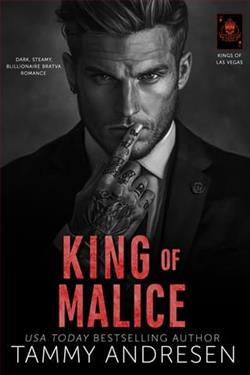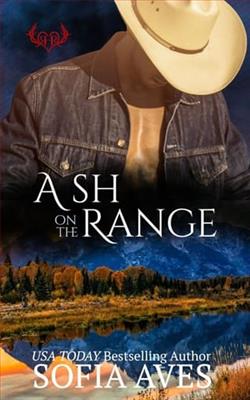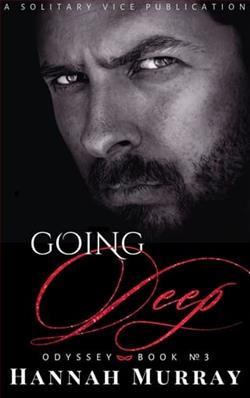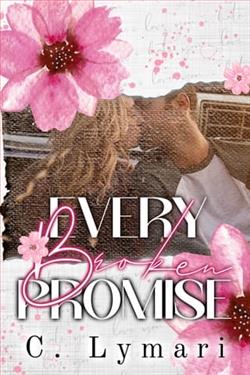Page 33 of The Bear's Heart
I guessed she meant arithmetic, so I nodded, thinking of the grade A Maths GCSE I had. Although I couldn’t imagine any problem she could put to me would involve a calculation more complicated than Year Six maths.
She picked up the top tablet and pushed it over to give me a better look. The writing was hard to read because she hadn’t made her letters the way I was used to seeing them. However, I could make out that it was a list, and after struggling to read the first few lines, I realized it consisted of the goods Captain Xander had delivered the day before. It was an inventory of what she had for trading further inland. Beside each item was a number in Roman numerals– not renowned for their capacity to make arithmetic easy.
“What is it you’re doing?” I asked.
For a moment, her hostility seemed as though it would hold her silent, and then what must have been desperation took over. “Reckon up how much of each item we have without having to go and count them again. My steward’s had the goods moved to our store rooms, but he counts badly, and now I’ve got thirteen amphorae of olive oil here.” She pointed with a long, somewhat inky finger. “And eleven more here. There’s spices mentioned here and here and here. It’s all in a muddle, and I’ve always found reckoning a tedious task.”
I had an easy solution for this. “Can I have a blank writing tablet, please?”
She paused as if to think about it, as though anything I might have to offer would be tainted by the blood she saw hanging over me. Then, still with marked reluctance, she handed me a blank tablet. I picked up the pen and dipped it in the ink. It wasn’t as easy to use as I’d expected and the first thing I did was get inky fingers and make a big blot on the tablet. I tapped the pen to lessen its load of ink and carefully wrote the numbers 1 to 10 on the tablet with a fair few more blots and smudges. Not my best work.
I let myself chuckle as I finished. “It’s really hard to use this pen but I think I’ll get better at it.”
“What have you written?” She was clearly puzzled. I pointed to my numbers and said their names aloud, which must have been the names of the Roman numbers as she didn’t quibble. “It’s called the Arabic numbering system. They come from the Middle Sea.” I almost said the Mediterranean and just managed to stop myself in time. “It’s much easier than the system you’re using. Having a single symbol for each number makes reckoning so much simpler.” I pointed to the three amphorae and the other two, written so far apart, and wrote 3 + 2 on her tablet. “On this list,” I went on, putting my finger on the 3, “move the two further down and the answer is 5. See?”
And that was how I won Eigr over to my side– by giving her a maths lesson.
She was highly intelligent, and very soon picked up the new notation, so I showed her how to add two figure numbers and the basics of the Arabic decimal numbering system and explained the concept of zero. Within an hour, she was adding numbers in their hundreds with ease, and very pleased with herself. And without actually lying, I’d managed to imply that I’d come from a country so far away we’d produced all this useful mathematics without having to share it with the rest of the known world.
Flushed at her own success, she looked up at me with an excited sparkle in her normally cold blue eyes. “For sharing with me your number magic,” she said, as though she were bestowing a great honor on me, “I will take you to look in my scrying glass. The future is fluid, and there’s always the chance you will observe something I might have missed.”
I swallowed. Part of me wanted to see this scrying glass, the part that was adjusting itself to life in the fifth century, but the still dominant twenty-first-century part of me was thinking that whatever she showed me would all be hokum. And yet, I’d gone to the fortune teller at the County Agricultural Show last summer. Although in all her wisdom, she’d neglected to tell me I’d be marrying a tall, dark, handsome stranger who happened to be a king. How remiss of her.
She put her thin hand on my arm. “Come with me, and together we’ll look into the glass.”
Mesmerized, almost, I got up and went with her.
She led me to a small thatched and stone-walled building reminiscent of an old Iron Age roundhouse. Inside, with the door closed behind us, it would have been very dark had she not lit a single candle.
“Sit.” She indicated a wooden bench before a low table upon which stood a block of wood.
I sat.
She stood the candle on the table and turned away. After a moment, she turned back, and from a dark cloth brought out a round mirror the size of a tea plate, made of black obsidian. She set it on the table just behind the candle, propped up against the block of wood. The candle flame reflected in it, guttering in a slight draught.
Eigr took her place beside me, laying her hands on the table, her fingers spread. “Look at the mirror,” she said. Gone was her previous friendliness, and in its place her voice was commanding and cold.
I looked at the glass. The candlelight flickered across its inky surface.
The silence in the little round house was complete. It pressed in around me, and I couldn’t take my eyes away from the circle of blackness. The woman beside me was forgotten. I blinked, and the candlelight shimmered across the obsidian. My face, reflected as a pale oval, looked back at me. Opening my mouth, I was about to say I could see nothing, when the surface of the mirror rippled as though a stone had been dropped into a black pool.
No longer was I looking at the dim reflection of my candle-lit face. Instead, a blood-stained battlefield littered with broken banners lay before me, with the humps of dead horses and a river running red beneath a sky where the setting sun had stained even the clouds red. I blinked again and the battlefield vanished. In its place, the circle of standing stones on the Tor stood gaunt against a leaden sky, and at my feet, through a mist of red, I saw Arthur lying on the grass. His eyes were closed, his face a mask of blood, his breathing shallow. He was dying. I blinked again, and the stones shimmered in the air like an image in water, and the ruined tower of St Michael’s church rose up before me, solid and real, with a little girl in a red coat standing, arms outstretched and eyes closed.
A noise by the door disturbed us, and light spilled in. My eyes darted sideways. Merlin stood on the threshold staring at us with his eyes wide and mouth half open. The spell was broken.
“What are you doing?” His voice brimmed with accusation.
Eigr’s cold face suffused with annoyance at his interruption. “My new daughter is learning my skills, as I have learned hers.” Her imperiousness would have matched her son’s.
I got to my feet in a hurry, like a child caught out doing something illicit and forbidden, my heart hammering, frightened by Merlin’s disapproval. “I taught the Lady Eigr how to use the Arabic numbering system,” I said, rather too quickly, in an effort to defuse what could have been a tricky situation.
Eigr got to her feet as well and smiled at Merlin, her cold face bright with the excitement of her intellectual achievement. “Your magic can’t contend with this,” she declared in triumph. “Gwen has shown me the magic of numbers.”
I forced myself to beam at him, although all the while I was thinking of what I’d seen in the black mirror.
“I can show you as well, if you like.” I felt I ought to offer.
He looked us up and down, then shook his head. “It’s not for me.”








